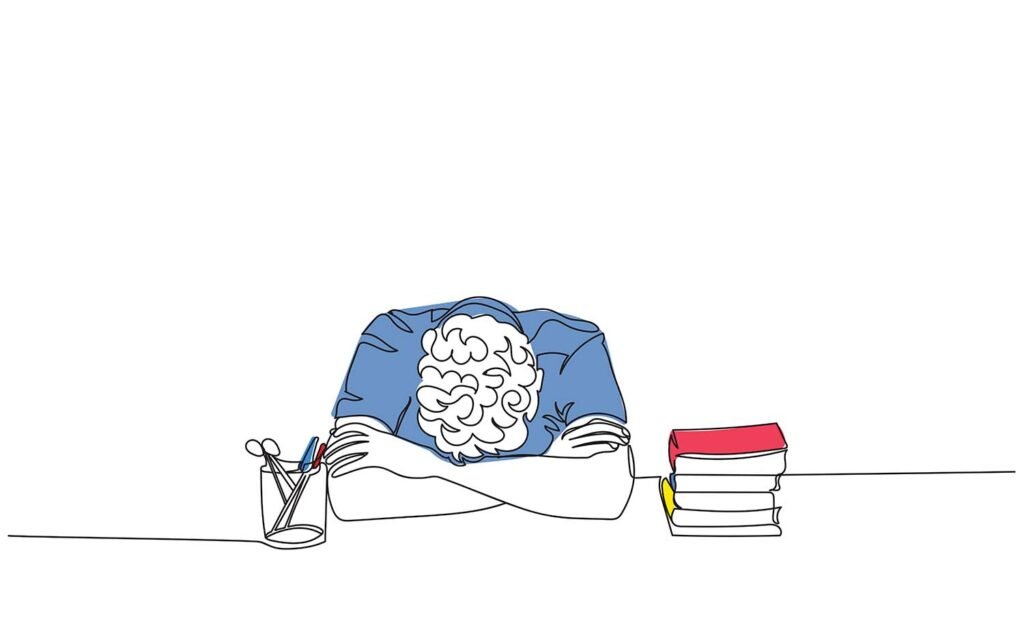Understanding the Psychological Impact of Exam Pressure on Students
In today’s competitive and image-driven society, academic performance is deeply intertwined with self-worth, family honor, and future security. This pressure can create a significant psychological burden for young people, leading to a rise in anxiety and other mental health challenges. The stress associated with exams often affects students in ways that are not immediately visible, making it crucial to understand the underlying factors and their long-term implications.
Common Pressures During Exam Season
Exam season brings with it a unique set of pressures that can have a profound impact on students’ mental health. Academically, the expectation to perform well and meet high standards can lead to stress, self-doubt, and fear of failure. Socially, students may feel pressured to compare themselves with peers, which can heighten feelings of inadequacy and anxiety. Additionally, familial expectations play a significant role, as many students feel the weight of their parents’ hopes and dreams.
These pressures often interact in complex ways, creating a multi-dimensional stress load that can result in burnout, sleep disturbances, and a decline in self-esteem. From a psychological perspective, this combination of stressors can exacerbate existing mental health issues or even trigger new ones such as anxiety and depression.
Cultural and Societal Expectations in Nepal
In Nepal, cultural and societal norms significantly influence students’ experiences during exam seasons. Academic success is often equated with family pride and social status, with certain professions like medicine, engineering, and law being seen as the ultimate markers of success. Students are frequently encouraged to pursue these paths from a young age, regardless of their personal interests or abilities.
The pressure to succeed can be overwhelming, especially when students fail to meet these expectations. They may face criticism not only from others but also from themselves, leading to a crisis of self-worth. Tragically, there have been reports of students taking their own lives after failing to meet these high standards, highlighting the severe consequences of unrelenting pressure.
This pressure extends beyond the individual, affecting families and relationships. Feelings of shame and disappointment can create an environment of unspoken trauma, influencing how the next generation is raised and perceived.
Recognizing Overlooked Signs of Stress
There are several less obvious signs that indicate a student might be struggling with exam-related stress. These include changes in daily habits, such as increased irritability, social withdrawal, or a loss of interest in previously enjoyed activities. Students may also become overly perfectionistic, spending excessive time on minor details or redoing tasks unnecessarily.
Physical symptoms like headaches, stomachaches, and fatigue without a clear medical cause can also be stress-related. Procrastination or avoidance of studying might be mistaken for laziness, but it often stems from a fear of failure. A decline in confidence, frequent self-criticism, or a superficially cheerful demeanor masking internal distress are additional indicators that should not be overlooked.
Effectiveness of Current Support Systems
Current support systems, including counselling services, peer support, and family involvement, have made some progress in addressing students’ mental health challenges during exams. However, there are still significant gaps. In urban areas, access to school or private counselling has improved, but stigma and lack of awareness remain barriers to seeking help.
Many students hesitate to seek assistance due to fear of judgment or being labelled. Some even resort to self-diagnosis using online tools, which can lead to misinterpretation of their conditions. Even when students do engage in therapy, stigma often prevents them from continuing, with many dropping out after just a few sessions.
Peer support can be comforting, but it is not always effective, as peers may also be struggling and offering harmful advice. Family involvement, while intended to provide support, can sometimes add to the pressure, with parents often focusing solely on academic success rather than emotional well-being.
Long-Term Impacts and Preventive Measures
Sustained exam pressure can have lasting effects on young people’s mental well-being. Chronic academic stress during formative years can lead to persistent anxiety, low self-esteem, and depression. Over time, students may develop an unhealthy association between self-worth and performance, leading to lifelong fears of failure and perfectionism.
To mitigate these effects, preventive measures must begin early. Families and educators should focus on the individual needs of each student rather than placing undue emphasis on academic achievements. Mental health education should be integrated into school curricula, teaching students how to manage stress, build resilience, and seek help when needed.
Schools should also prioritize emotional intelligence and social skills alongside academics. Parents need to shift their focus from results to effort, growth, and emotional well-being, fostering a supportive environment where students feel valued and understood.

